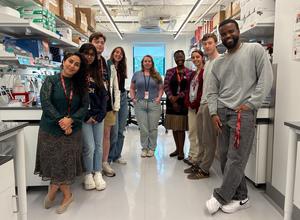Overview
- High-throughput CRISPR screens revealed that solid tumors deficient in CDKN2A and MTAP become dependent on the enzyme PRMT5 for survival
- Combining PRMT5 inhibitors with drugs targeting the MAP kinase pathway outperformed single agents in both cell cultures and animal models, achieving complete tumor regressions
- The strategy could benefit an estimated 5 percent of U.S. cancer patients annually, including those with lung, pancreatic, glioblastoma, melanoma and mesothelioma
- Results published in Cancer Research in July 2025 leveraged genomic analyses from cBioPortal alongside CRISPR-based genetic interaction mapping
- Researchers are now moving the combination therapies toward phase I clinical trials to evaluate safety and efficacy in patients with treatment-resistant solid tumors
